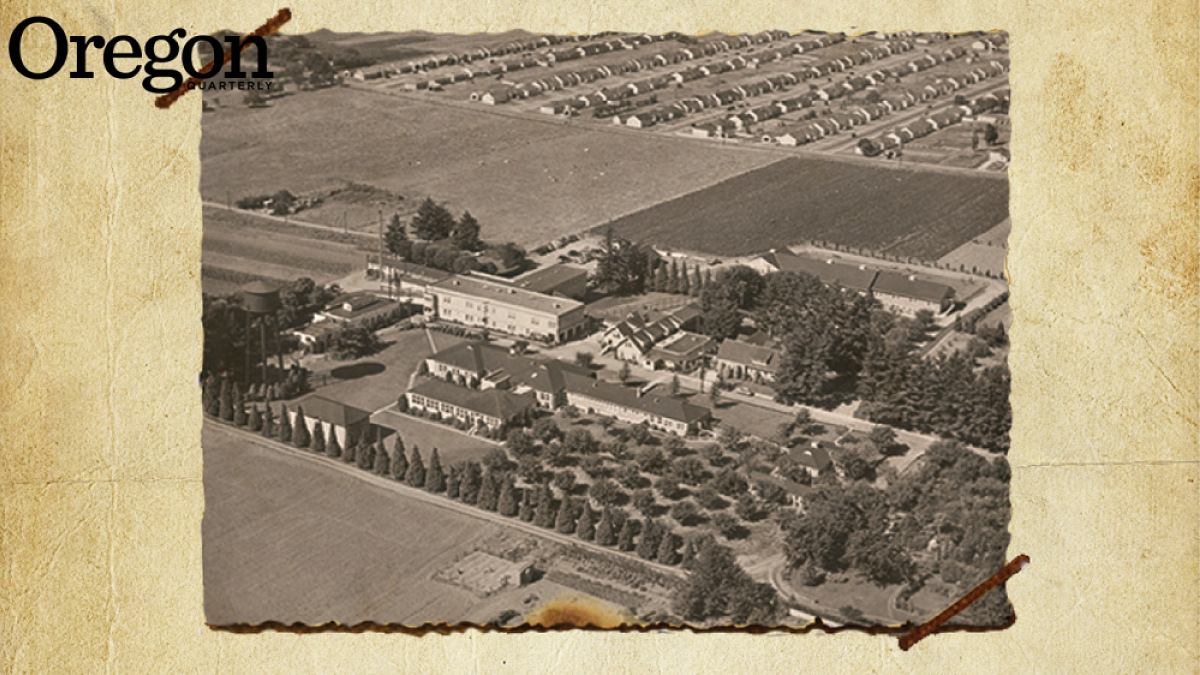In the 1800s, it was called Dr. Coe’s Nervous Sanitarium. That’s one of the old names for Morningside Hospital, a psychiatric facility in Portland touched by controversy over 85 years of operation. The hospital was shuttered in the 1960s and its land converted into a shopping mall, thus beginning Morningside’s retreat from the public awareness.
Until now. UO researchers recently familiarized themselves with Morningside, courtesy of a treasure trove of hospital records. What began as a study of mental illness became an examination of the hospital and mental health care in the Pacific Northwest that introduced two undergraduates to the excitement of an open-ended investigation.

“Even though many global health students think about contemporary challenges, they’re also thirsty for understanding how the past informs the present,” Yarris says.
Working in UO Libraries’ Special Collections and University Archives, the team sifted through records, meeting minutes, and notes from DeWitt Burkes, a psychiatrist at the hospital in the ’50s. As the team dug deeper, the multilayered Morningside story resurfaced.
In 1904, the US Department of the Interior contracted with Morningside to hold people with mental illness from the Alaska Territory, which had no facilities. Mental illness—at the time, often treated as a crime—was defined broadly, including schizophrenia, tuberculosis, alcoholism, Down syndrome, and even homosexuality.
Fascinated by their finds, the team expanded their reach. They traveled to Portland’s Oregon Historical Society, home to records of the late Edith Green, the legendary Oregon representative and 1940 alumna known for trailblazing work in the creation of Title IX. Green was key to the passage of the Alaska Mental Health Enabling Act of 1956, meant to improve care in the territory.
“The Edith Green papers . . . told a very rich story about how the hospital was being audited,” McGill says, for financial mismanagement and criticism of patient care.
As Green and Alaska lawmaker Bob Bartlett worked for legislation to transfer care of patients back to Alaska, investigations continued over the hospital’s treatment of patients and possible misuse of federal money.
“We were looking at both the medical and the political side, so it became a multifaceted research question,” Farland says. “You can see that one of the doctors cares deeply about the patients and wants to diagnose them very accurately, but then you also get the more business side [and concerns] about making a profit. It feels like you’re reading a novel, but this is real life.”
The team was surprised by patients’ descriptions of treatment, several of which appeared in the Green archive.
“I read something from a patient who was getting (electroconvulsive therapy) and she wrote, ‘I’ve had it seven times, I’ve been held down. I don’t want it again,’” Farland says.
When Wood and Yarris first presented the Morningside records to McGill and Farland, the energy with which the students dove in confirmed to the faculty members the merit of the project. Undergraduates are clamoring for research opportunities in the social sciences and humanities, Yarris says.
Adds Wood: “It’s about undergraduates producing knowledge, not just consuming it.”
—By Sharleen Nelson, University Communications


